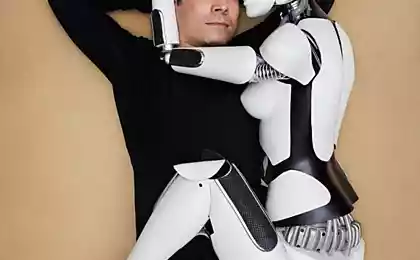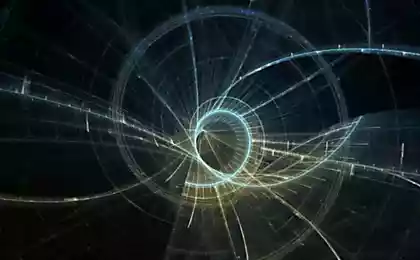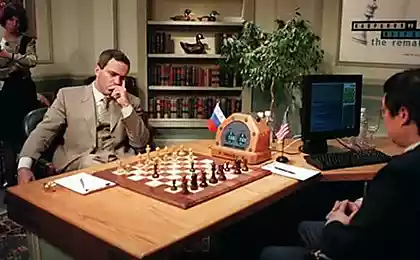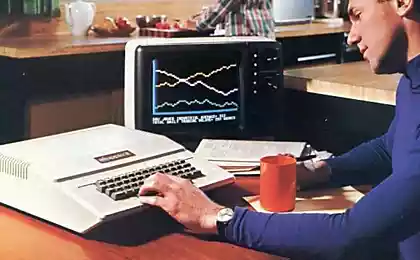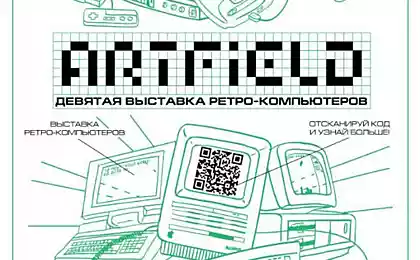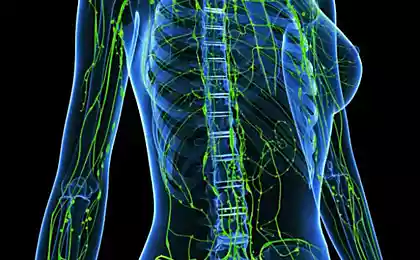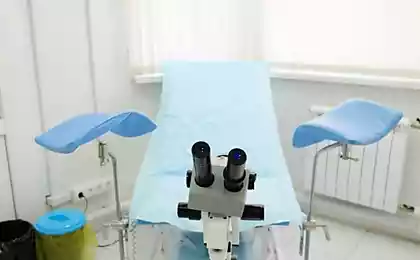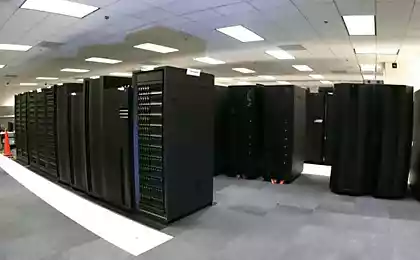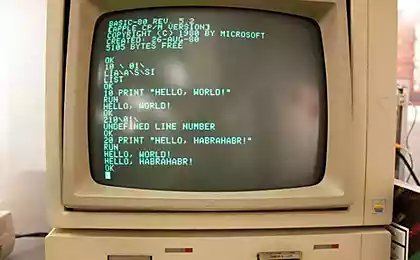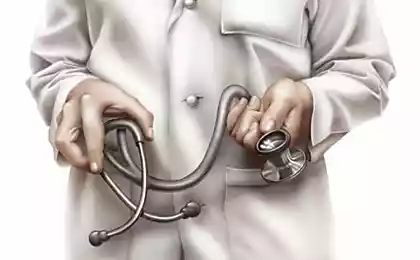529
Can computers replace doctors
Even in science fiction there is no such that doctors fully replace computers. In Star trek, for example, holographic doctors were widespread. But to be treated only in case of an emergency. On Board the ship, as a rule, must be a full-fledged doctor.
In real life, we are already working with computers instead of doctors using the Internet to look up symptoms and order medical care before heading to the reception. While this is not the same as to appeal to the real man: no such confidence, and some people believe that computers can never replace real doctors for that reason. Computers are unable to hold long consultations, pulling every bit of information that can be useful for the formation of the diagnosis, they do not show sympathy, empathy and are not responsible. We don't go to doctors for communication, but to communicate with the machine too, not always pleasant.
If there is a preliminary answer to the question in the title, it is "relatively". Will the medicine an outdated professional field in the future? Probably not. Can computers replace doctors in certain matters? Most likely, Yes. The only thing we know for sure is that the medicine of the future will be radically different from what we know it today.
As the experts evaluate the role of robots and computers in medicine of the future? Let's talk.
Man or machine?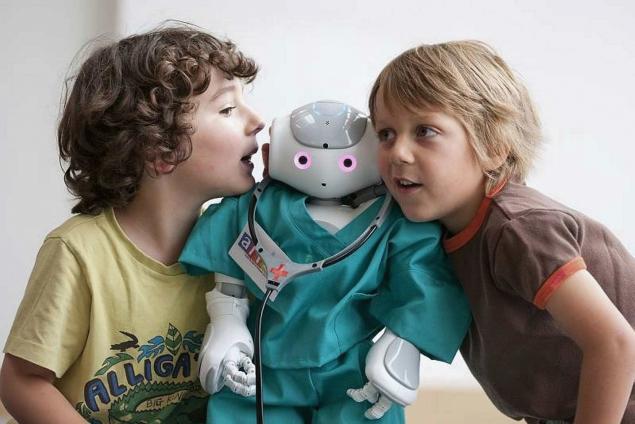
Computers are becoming more advanced and many people believe that they can replace doctors at least to some extent. Dr. Kent Bottles argues that "within five years, the ambulance will be replaced by sociable robots, humanoids, avatars, and computer programs." He believes that doctors will still take place, but the computers will take over the basic functions of the assistants of the ambulance. Many diseases that Bottles calls the "chronic diseases, following the rules" (which we understand from a scientific point of view), can be diagnosed using computers, including diabetes mellitus type II. This leaves the doctors time on the diagnosis and treatment of chronic diseases that require more intuition and thinking, like schizophrenia.
Farhad Manju, technical writer, whose wife is a pathologist, agrees that computers will replace doctors, but to survive is clearly not the assistants of the ambulance and doctors for General purposes. Medical specialists — as his wife — that is, who is in danger. Manju believes that "robots are excellent specialists. They can do the same thing an infinite number of times, and if you focus, it simply has no equal." Because doctors of General purpose define a fairly wide range of diseases and conditions, they are too universal, to deprive them of jobs. They also have important in this case, communication skill.
There is another view. Ezra Klein indicates that doctors, who know medicine, know how to communicate not so good. At least not always. Computers can separate the "communication, element of human practices, from the technical diagnosis". Klein said that far more important are the nurses and nurse. So maybe the doctors are General purpose and they will lose their job, but we will still need people with medical training who will talk to us and send the information to the computer. Many of the profession currently combine human and computer qualities, for example, an accountant.
Robots хирурги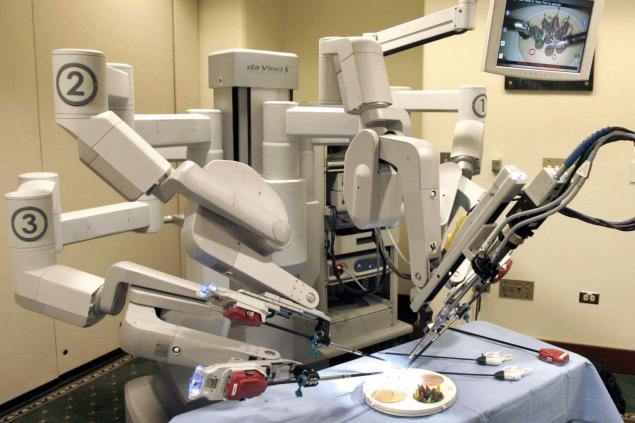
Since the introduction of robotic surgery in 1985, it has attracted a lot of attention. Today very common surgical system da Vinci. It is a system with a 3D camera that shows the surgeon what is happening in the patient's body, and uses robotic manipulators to maintain the instruments inside the patient's body. The system recognizes the hand movements of the surgeon using the manipulator, and repeats them in the patient's body, allowing you to make tiny incisions that the surgeon can not do. This system is used in over 800 hospitals in the U.S. and Europe. But until 2010, none of the surgery was not carried out by yourself was just the manipulators, mirror mimic the surgeon's movements. In 2010, there were fully-robotic surgery — a surgeon pressed some buttons but did not manipulate the instruments yourself.
Robots are also used for the diagnosis and treatment of diseases. A PAP smear test, which is familiar to most women — it helps diagnose cervical cancer. The slides are often analyzed by an automated system which should highlight problem areas for subsequent analysis by a human. This process directly leads us to computer diagnostics.
Watson, the artificial intelligence IBM famous for his victory over the participants of the program "Jeopardy!" in 2011, also used for diagnosis. The machine can use their scientific knowledge and natural language capabilities to receive a query from a doctor and to help him make a diagnosis.
The question remains: will people ever turn to the computer instead of a doctor? Dr. Bottles thinks it is. He cites a medical kiosk avatar on the stand World Science Festival in 2011. The young mother turned to the kiosk, being concerned about the diarrhea of her child. It turned out that avatar was more compassionate in the relationship with the child and his mother than a regular nurse who spoke with the mother in the hospitals of new York. However, kiosks diagnosticians are no longer a novelty, though, and are in the development stage.
While we feel concern and get an accurate diagnosis and treatment, no matter who provides it: a man or a robot.
I suspect that all people have the same attitude to doctors. We all talked with professionals. Some doctors just incredibly tough. But there were those who spoke more than two words and kept eye contact. No one asked about the day we found discomfort. Often doctors make mistakes, but the most courageous dreams of a better world admission being is that after watching the TV series "Dr. house". If the doctor is not familiar and not family, the chances that communication with him will be pleasant, equal to one to two. It is better to apply to the robot.
Source: hi-news.ru
In real life, we are already working with computers instead of doctors using the Internet to look up symptoms and order medical care before heading to the reception. While this is not the same as to appeal to the real man: no such confidence, and some people believe that computers can never replace real doctors for that reason. Computers are unable to hold long consultations, pulling every bit of information that can be useful for the formation of the diagnosis, they do not show sympathy, empathy and are not responsible. We don't go to doctors for communication, but to communicate with the machine too, not always pleasant.
If there is a preliminary answer to the question in the title, it is "relatively". Will the medicine an outdated professional field in the future? Probably not. Can computers replace doctors in certain matters? Most likely, Yes. The only thing we know for sure is that the medicine of the future will be radically different from what we know it today.
As the experts evaluate the role of robots and computers in medicine of the future? Let's talk.
Man or machine?

Computers are becoming more advanced and many people believe that they can replace doctors at least to some extent. Dr. Kent Bottles argues that "within five years, the ambulance will be replaced by sociable robots, humanoids, avatars, and computer programs." He believes that doctors will still take place, but the computers will take over the basic functions of the assistants of the ambulance. Many diseases that Bottles calls the "chronic diseases, following the rules" (which we understand from a scientific point of view), can be diagnosed using computers, including diabetes mellitus type II. This leaves the doctors time on the diagnosis and treatment of chronic diseases that require more intuition and thinking, like schizophrenia.
Farhad Manju, technical writer, whose wife is a pathologist, agrees that computers will replace doctors, but to survive is clearly not the assistants of the ambulance and doctors for General purposes. Medical specialists — as his wife — that is, who is in danger. Manju believes that "robots are excellent specialists. They can do the same thing an infinite number of times, and if you focus, it simply has no equal." Because doctors of General purpose define a fairly wide range of diseases and conditions, they are too universal, to deprive them of jobs. They also have important in this case, communication skill.
There is another view. Ezra Klein indicates that doctors, who know medicine, know how to communicate not so good. At least not always. Computers can separate the "communication, element of human practices, from the technical diagnosis". Klein said that far more important are the nurses and nurse. So maybe the doctors are General purpose and they will lose their job, but we will still need people with medical training who will talk to us and send the information to the computer. Many of the profession currently combine human and computer qualities, for example, an accountant.
Robots хирурги

Since the introduction of robotic surgery in 1985, it has attracted a lot of attention. Today very common surgical system da Vinci. It is a system with a 3D camera that shows the surgeon what is happening in the patient's body, and uses robotic manipulators to maintain the instruments inside the patient's body. The system recognizes the hand movements of the surgeon using the manipulator, and repeats them in the patient's body, allowing you to make tiny incisions that the surgeon can not do. This system is used in over 800 hospitals in the U.S. and Europe. But until 2010, none of the surgery was not carried out by yourself was just the manipulators, mirror mimic the surgeon's movements. In 2010, there were fully-robotic surgery — a surgeon pressed some buttons but did not manipulate the instruments yourself.
Robots are also used for the diagnosis and treatment of diseases. A PAP smear test, which is familiar to most women — it helps diagnose cervical cancer. The slides are often analyzed by an automated system which should highlight problem areas for subsequent analysis by a human. This process directly leads us to computer diagnostics.
Watson, the artificial intelligence IBM famous for his victory over the participants of the program "Jeopardy!" in 2011, also used for diagnosis. The machine can use their scientific knowledge and natural language capabilities to receive a query from a doctor and to help him make a diagnosis.
The question remains: will people ever turn to the computer instead of a doctor? Dr. Bottles thinks it is. He cites a medical kiosk avatar on the stand World Science Festival in 2011. The young mother turned to the kiosk, being concerned about the diarrhea of her child. It turned out that avatar was more compassionate in the relationship with the child and his mother than a regular nurse who spoke with the mother in the hospitals of new York. However, kiosks diagnosticians are no longer a novelty, though, and are in the development stage.
While we feel concern and get an accurate diagnosis and treatment, no matter who provides it: a man or a robot.
I suspect that all people have the same attitude to doctors. We all talked with professionals. Some doctors just incredibly tough. But there were those who spoke more than two words and kept eye contact. No one asked about the day we found discomfort. Often doctors make mistakes, but the most courageous dreams of a better world admission being is that after watching the TV series "Dr. house". If the doctor is not familiar and not family, the chances that communication with him will be pleasant, equal to one to two. It is better to apply to the robot.
Source: hi-news.ru


